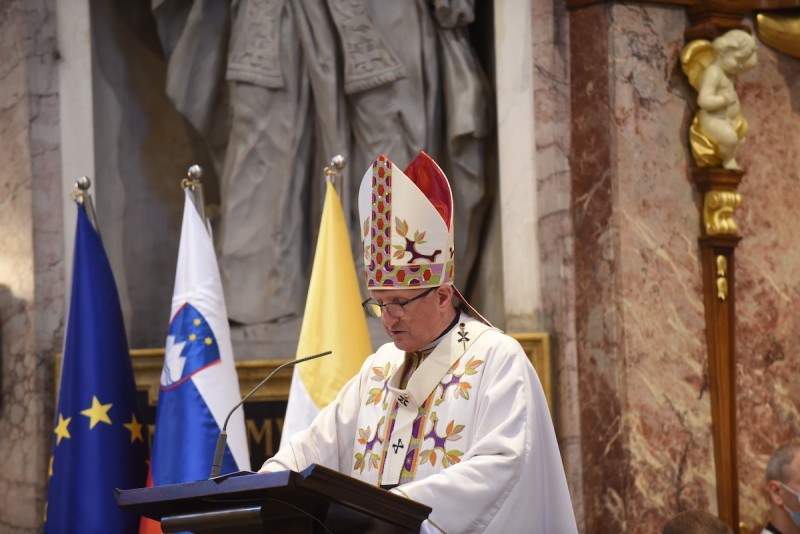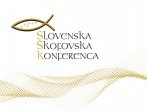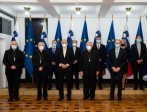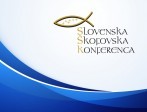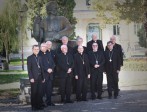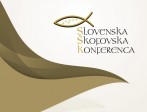Mr President of the Republic of Slovenia Borut Pahor, Mr President of the National Assembly Igor Zorčič, Mr President of the Federal Parliament of Austria Wolfgang Sobotka, Mr President of the National Council Alojz Kovšca, Mr Prime Minister of the Republic of Slovenia Janez Janša, Your Excellency the Apostolic Nuncio to the Republic of Slovenia Msgr Jean-Marie Speich and members of the diplomatic corps, brother bishops, priests, deacons and religious, representatives of sister Churches and other communities of faith, Presidents of the Courts, Ministers of the Government, representatives of the armed services and the police and all other institutions of our political, economic and cultural life. Brothers and sisters,
We gather in our cathedral every year before the National Holiday to celebrate mass for the homeland. Our celebration should be especially solemn this year, as we celebrate the 30th anniversary of our national independence. Thirty years since we experienced the "smile of history", as the first Prime Minister of the Independent Republic of Slovenia Lojze Peterle likes to put it. Celebrating this anniversary should help us to internalize this smile, to make it ours and to radiate it from within us into the world, to give it to the people with whom we will celebrate together and with whom we will shape our present and future together.
The independence of the Republic of Slovenia was indeed promulgated on June 25, 1991; through this act our State was constituted and with that everything that defines it in political, economic, security and other relations with its surroundings. It was a glorious day, as the decision by the people expressed in a referendum six months earlier became concrete reality in the form of an independent State.
However, there would not have been any independence had it not lived long before then in the hearts that were beating for Slovenia. We should remember Dr Marko Kremžar, who died June 11 this year. He and many others carried the thought of an independent Slovenia when it seemed it was a utopia, a dream that could never come true, a desire that could only give birth to pain. Dr Kremžar was a refugee and part of the "emigration" that was considered a curse; Slovenia was not free, but in his heart and in the hearts of people who thought and lived the way he lived, it was free and independent all along.
Today, we should look proudly at our past, at our history. It is indeed a miracle that we as a nation have withstood and survived in this crossroads of nations, cultures and languages. We settled in a place where we had to be open to our neighbors, who in turn enriched us with their achievements and encouraged our all-round development. Not only did we learn from others but also were creative enough to upgrade what we had learned and to contribute to the world’s treasure of knowledge and progress. On the other hand, we learned how to preserve our core, our essence, that makes us recognizable first to ourselves and then to those who have met us.
Although we live in an area that is probably the draftiest in Europe, as all major European language groups meet here - Slavic, Latin, Germanic and Finno-Ugric, we have known how to preserve our identity. Our people have spoken to their neighbors in different languages. However, they have sung and prayed in Slovenian, in dual form - they have been aware that prayer touches the heart only in the mother tongue and bread smells pleasantly only in the mother tongue.
Brother Branko Cestnik has aptly written, “The crown of our perseverance, endurance, and also a certain resistance is the independent State of Slovenia, which we proclaimed thirty years ago. The title of winners is justified. Our national pride is also justified. We are small, but we are here. We do not have a lot of geopolitical influence, but we matter. We do not flood the world with our economic and cultural products, but we make a great contribution” (Cerkev danes, 3/2021, 3).
This justified pride fosters our gratitude. Nevertheless, the smile of history or the radiance of light from the sky, as the then German Chancellor Helmut Kohl said, must have been noticed by someone. Without people who paid attention to the signs of the times and with a subtle sense of what was happening, albeit perhaps with too little political experience, they realized that the world had opened up to new possibilities for a few moments, that at some point the smile would die, the light would fade, and the world would close again. Therefore, we are grateful to all those who perceived the moment. It was mostly the same people who realized it, with the participation of many. Regardless of what we often hear, who was an independence activist and who was not, the fact is that although first, we had the presidency of the Republic of Slovenia. Still, only one person was the first Prime Minister, the first Minister of Defense, Minister of the Interior or other ministers, only one person was the first Commander of the emerging Slovenian Army, etc. (J. Plut). Nobody can take this place away from them in the history of the Slovenian State.
Our path to independence and international recognition would have been very different were it not for the Slovenians with big hearts and powerful consciousness living abroad in many countries, especially those in key places. Together with the priests who led the Slovenian Christian communities there, they addressed politicians, diplomats, businesspeople and others about the emergent Slovenia. They gathered in the city squares, in front of the parliaments of different countries - without bicycles, but with flags - Slovenian flags and slogans that promoted Slovenia. Since they were prominent and successful members of societies in those countries, their voice was heard. In them, the story of the biblical Joseph was repeated. Joseph was sold to Egypt by his brothers, and he saved them from death in distress.
Today, I also look with pride and gratitude at the work of the many members of the Catholic Church in Slovenia. Bishops and priests carried freedom in their souls at the time of oppression; the condemnation, the imprisonment or the harassment could not tear this freedom Christ had given us from their hearts. Therefore, they enthusiastically supported and inspired people for the work for independence. They were inspired by Archbishop Alojzij Šuštar, who at that time acted as a true ambassador of Slovenia in Europe. The Justice and Peace Commission at the Slovenian Bishops' Conference, chaired by Archbishop Anton Stres, also played an essential role in addressing the public with the basic principles of the Church's social doctrine. We also owe deep gratitude to the Holy See and Pope St. John Paul II, who was keenly interested in what was happening in Slovenia at the time of the independence effort. The Holy See was one of the first to recognize the independent State of Slovenia January 13th, 1992 and thus significantly influenced recognition especially by Western European countries.
As our independence needed to be defended, we remember with gratitude and prayer those who died defending it, and we respectfully consider the pain experienced by their families.
Have we achieved what we hoped for thirty years ago? Yes, we mostly have. Not in all segments of society, not in all subsystems of the State. But those of us who knew the operation of the former regime up close know well the path we have taken since our mother tongue was endangered and when our shopping centers were in Trieste or Klagenfurt. The path we have taken since the later Archbishop Franc Perko was imprisoned for three years for relating a joke to the present day when even hostile slogans are interpreted as freedom of speech. Of course, we have not yet come far enough since only the social order is democratic, whereas democracy has not yet permeated the thinking and acting of the people.
In order to achieve what we want we will have to rid our country of the revolutionary practices and "acquisitions" in the operation of all the institutions of society. As Dr Marko Kremžar noted in an interview with the journalist Jože Možina, Slovenia has the opportunity to become one of the most developed European countries if it breaks with the socialist mentality that has crippled development and enforces freedom and private initiative.
What do we need to do in order to move forward? We will have to agree on the true foundations on which we are building our State. In addition, we will have to recognize the spiritual history of our nation, the history of Christianity, which shaped our region with many churches and chapels, and our cultural creativity and the noble heart, mind and language of our ancestors who shaped the consciousness of the Slovenian people. Today, it seems as if some are ashamed of our Christian past and present. Ivan Cankar was ashamed of his mother because she was a simple “peasant,” but she gave birth to him and through her hard work paid for his schooling.
We will continue to remain open and gladly accept anything that can enrich our efforts for true human progress. That could enable concrete respect among people and different groups in our country, especially in political action.
Some people in our country will have to stop opposing everything and start working. As responsible citizens, we will all need to contribute to our common search for better conditions, greater prosperity and respectful understanding. We will need to contribute proposals geared to creating and safeguarding the common good. Merely opposing everything and everyone does not build either society or the State but destroys them.
I can hardly wait for the time when a generally positive mindset sets in, when every critique flows into a proposal for improvement, for growth, for joy. We Christians intend to participate in all facets of social and political life and to cooperate to a greater extent, inspired by the encouragement of the Apostle Paul, "First of all, then, I urge that petitions, prayers, requests, and thanksgivings be offered to God for all people; for kings and all others who are in authority, that we may live a quiet and peaceful life with all reverence toward God and with proper conduct. This is good and it pleases God our Savior, who wants everyone to be saved and to come to know the truth."
Dear brothers and sisters, let me end my reflection with an optimistic view of Dr Marko Kremžar, "I am convinced that Slovenians will have much more of the future than they have had of the past." Therefore, let us acknowledge the past and live into the future.
God bless our beloved Slovenia. May our actions, our love and our fidelity also be a blessing.
Msgr Stanislav Zore
Metropolitan Archbishop of Ljubljana
President of the Slovenian Bishops' Conference

